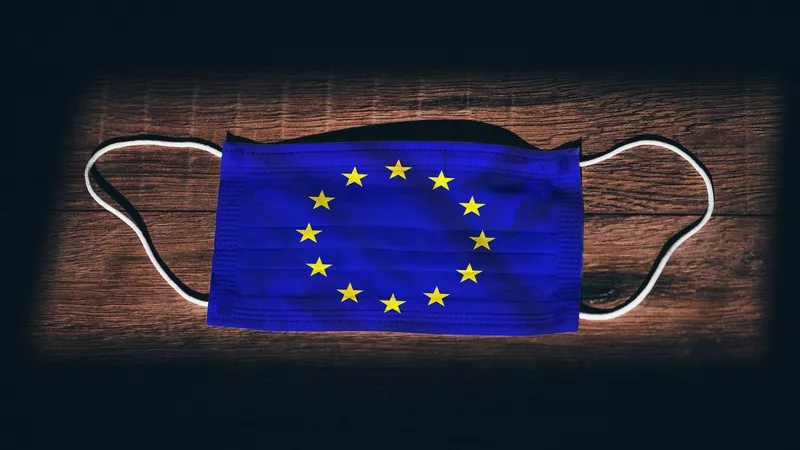As the number of smart phone and tablet users continues to soar, consumer purchasing behaviour will change and consumers will increasingly opt for the convenience of contactless cards and NFC-based payments in the next three to five years. This is one of the findings of a new study into retail payment technology trends, commissioned by CARTES Secure Connexions Event and Payments Cards & Mobile, which also revealed that difference stakeholders have different priorities when it comes to the next generation of
October 30, 2013
Read time: 3 mins
As the number of smart phone and tablet users continues to soar, consumer purchasing behaviour will change and consumers will increasingly opt for the convenience of contactless cards and NFC-based payments in the next three to five years.
This is one of the findings of a new study into retail payment technology trends, commissioned by CARTES Secure Connexions Event and Payments Cards & Mobile, which also revealed that difference stakeholders have different priorities when it comes to the next generation of payment technologies:
• Consumers are looking for quicker, more convenient and secure payments with the capability to handle discount vouchers
• They do not trust QR codes and mobile magnetic strip points of sale, seeing them as the least secure option
• Retailers are hoping to use the technology to gather information on existing customers and attract new ones
• Loyalty cards, discount vouchers and data on consumer preferences are the services which add the most value for retailers, who believe contactless cards, traditional cards and NFC mobile cards and wallets are the best technologies for developing these services.
The survey also identified conflict between providers when it came to next-generation point-of-sale payment services. Banks and card system operators are seeking to head off competitors in the payment methods sector. The Banque Accord has already developed its own NFC application called Flash’n pay, allowing consumers to scan their articles in store, to access discounts in real time and pay with their own mobile terminal. Consumers are attracted by several features of the new payment methods, including paperless billing and loyalty cards, discount vouchers, product information, scanning and paying for articles using personal devices and location-based services. Retailers told the survey that if these new services make it possible to boost sales and attract new customers, they are willing to invest in new systems. Commenting on the report, Isabelle Alfano, Director of the Cartes Secure Connexions Event said the emerging market for contactless payments presents a challenge for retailers when it comes to picking the right technology. “Although the major players in retail are aware that they have to meet the challenge of mobile payments to secure the loyalty of existing customers and attract new ones, they do not yet know in which technologies it is worth investing. Many questions about the new payment methods remain to be answered but this also means there are opportunities to be seized.”
This is one of the findings of a new study into retail payment technology trends, commissioned by CARTES Secure Connexions Event and Payments Cards & Mobile, which also revealed that difference stakeholders have different priorities when it comes to the next generation of payment technologies:
• Consumers are looking for quicker, more convenient and secure payments with the capability to handle discount vouchers
• They do not trust QR codes and mobile magnetic strip points of sale, seeing them as the least secure option
• Retailers are hoping to use the technology to gather information on existing customers and attract new ones
• Loyalty cards, discount vouchers and data on consumer preferences are the services which add the most value for retailers, who believe contactless cards, traditional cards and NFC mobile cards and wallets are the best technologies for developing these services.
The survey also identified conflict between providers when it came to next-generation point-of-sale payment services. Banks and card system operators are seeking to head off competitors in the payment methods sector. The Banque Accord has already developed its own NFC application called Flash’n pay, allowing consumers to scan their articles in store, to access discounts in real time and pay with their own mobile terminal. Consumers are attracted by several features of the new payment methods, including paperless billing and loyalty cards, discount vouchers, product information, scanning and paying for articles using personal devices and location-based services. Retailers told the survey that if these new services make it possible to boost sales and attract new customers, they are willing to invest in new systems. Commenting on the report, Isabelle Alfano, Director of the Cartes Secure Connexions Event said the emerging market for contactless payments presents a challenge for retailers when it comes to picking the right technology. “Although the major players in retail are aware that they have to meet the challenge of mobile payments to secure the loyalty of existing customers and attract new ones, they do not yet know in which technologies it is worth investing. Many questions about the new payment methods remain to be answered but this also means there are opportunities to be seized.”









